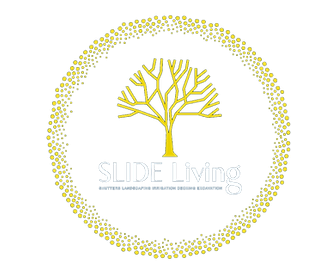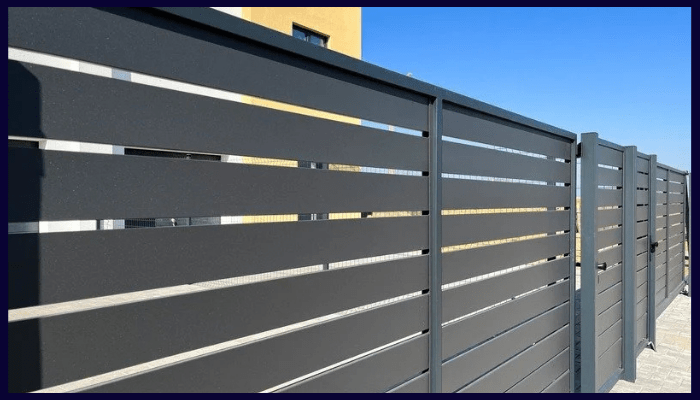Top 6 Common Types of Residential Fences in Albury (with Pros, Cons & Best Uses in Albury Wodonga)
Table of Contents:
Looking at the most common types of residential fences? Choosing a fence for your Albury Wodonga home involves more than marking boundaries.
The right design enhances privacy and security. It also boosts curb appeal. Plus, it can withstand hot summers, frosty winters, and occasional bushfire risks.
In this guide, you’ll find the pros, cons, and best uses of each fence type to help you weigh up maintenance, durability, and appearance.
Quick Comparison of the Most Common Types of Residential Fences
| Fence Type | Privacy | Durability | Maintenance | Cost | Best Suited For |
|---|---|---|---|---|---|
| Colorbond | Excellent solid panels | Highly durable and fire resistant | Minimal—usually just washing | $$$ | Side/rear yards; bushfire-prone areas |
| Timber | Good (depends on style) | Moderate; rot/termites risk | High—regular staining/painting | $$ | Traditional homes; budget-conscious properties |
| Picket | Low (open gaps) | Moderate | Medium—repaint every few years | $$ | Front yards; heritage/Hamptons style |
| Aluminium | Moderate (slat spacing varies) | Very durable; rust-proof | Low—powder coat protects | $$$ | Modern homes; pool fencing; stylish boundaries |
| Vinyl / PVC | Good—solid panels or pickets | Good; weather-resistant* | Very low | $$$ | Hamptons look; low-upkeep suburban homes |
| Wrought Iron | Low (open design) | High with maintenance | Medium–high—repaint for rust | $$$$ (premium) | Decorative fronts; heritage/prestige properties |
Fencing cost is one of the biggest considerations for Albury homeowners. While timber is often more budget-friendly upfront, options like Colorbond or aluminium may prove more cost-effective long term due to lower maintenance.
*Note: PVC fencing is weather resistant and low maintenance but not fire resistant. In bushfire prone areas of Albury Wodonga, steel fences or Colorbond steel is safer.
Why Residential Fences Matter for Albury Homes
Privacy Fencing and Security
Block prying eyes, keep pets safe, and add extra security to property lines.
Curb Appeal
Decorative fence styles improve street presentation and property value.
Durability
Choose fencing materials that withstand extreme weather conditions, insect damage, and wear.
Council Rules
Pool fences must meet AS1926.1 standards; front fences often have height limits.
Top 6 Most Common Types of Residential Fences
1.Colorbond Fences: Highly Durable and Low Maintenance
| Pros | Cons | Best Uses |
|---|---|---|
| Highly durable and rust resistant. | Higher upfront cost. | Side and rear residential properties. |
| Low maintenance, no repainting. | Limited decorative designs | Rural areas and bushfire-prone zones. |
| Excellent privacy fencing with no gaps. | Colour may fade over time. | Modern homes seeking sleek style. |
2. Timber Fences: Natural Materials with Traditional Appeal
| Pros | Cons | Best Uses |
|---|---|---|
| Boosts curb appeal instantly. | Limited privacy. | Front yard boundaries. |
| Complements heritage and Hamptons style homes. | Requires painting or staining. | Decorative fence for period or modern homes. |
| Easy approval under council regulations. | Not highly secure. | Homes wanting visual charm. |
3. Picket Fences: Decorative Fence for Front Yard Curb Appeal
| Pros | Cons | Best Uses |
|---|---|---|
| Boosts curb appeal instantly. | Limited privacy. | Front yard boundaries. |
| Complements heritage and Hamptons style homes. | Requires painting or staining. | Decorative fence for period or modern homes. |
| Easy approval under council regulations. | Not highly secure. | Homes wanting visual charm. |
Not sure which fence types suit your block?
Book a quick site visit for tailored advice plus a fixed free quote. Request your quote.
4. Aluminium Fencing: Sleek, Rust Free, and Minimal Maintenance
| Pros | Cons | Best Uses |
|---|---|---|
| Rust proof and highly resistant. | More costly than wood fencing. | Slat fences for modern homes. |
| Minimal maintenance required. | Less sound blocking. | Pool fences and boundary fencing. |
| Available in slat or tubular steel styles. | May dent if thin gauge. | Residential properties needing durability. |
5. Vinyl / Pvc Fencing: Minimal Maintenance and Modern Styles
| Pros | Cons | Best Uses |
|---|---|---|
| Minimal maintenance; won't rot or splinter. | Limited colour choices. | Decorative front yard fencing. |
| Clean, uniform appearance. | Can warp in extreme heat. | Privacy fencing in residential properties. |
| Eco friendly options available. | Not fire resistant. | Suburban homes preferring neat aesthetically pleasing style. |
6. Wrought Iron Fences: Ornamental and Extra Security
| Pros | Cons | Best Uses |
|---|---|---|
| Decorative fence with intricate patterns. | Requires much maintenance. | Front yard fencing for heritage homes. |
| Highly durable with proper care. | Higher cost. | Decorative boundaries for prestige homes. |
| Provides strong security. | Can rust in damp conditions. | Properties needing extra security. |
Other Fencing Options
While less common, these fencing materials also work in Albury Wodonga:
Chain link fences: cost effective for side yards, pets safe or agricultural purposes; minimal privacy.
Composite fences: wood look, eco friendly, low maintenance, available in various styles.
Brick fencing: highly durable, often paired with slat fences or Colorbond steel panels.
Tubular Steel (Galvanized Steel):
Strong
Cost-effective
Highly resistant
Often installed on steel posts
How to Choose the Best Fencing Materials for Your Property
When deciding on the best type of residential fencing for your Albury home, consider these key factors:
Budget: when comparing timber vs colorbond, timber proves more cost effective upfront, while Colorbond has a higher initial cost but often lasts longer.
Design preferences: decorative fence styles versus modern homes slat fences.
Maintenance: wooden fences need proper maintenance; Colorbond and PVC fencing offer minimal maintenance.
Durability: choose highly durable fencing materials for extreme weather conditions.
Council rules: property lines and front yard fence heights have local limits.
Installation and Maintenance
You can install chain link or timber fences yourself. However, hiring a pro guarantees they meet standards and last longer.
Use steel posts for wooden fences to reduce weather damage significantly and help prevent common mistakes to avoid, such as instability or premature wear.
Apply proper maintenance: staining timber fences, cleaning vinyl fences, repainting wrought iron regularly. Replace old wire fence sections when insect damage, sagging or rust exceed reasonable repairs.
Conclusion
The most common residential fences in Albury Wodonga are:
Colorbond fences.
Timber fences.
Picket fences.
Aluminium fences.
PVC fencing.
Wrought iron fences.
Each option has its own benefits. Your choice depends on privacy needs, budget, and design preferences for your outdoor space.
Ready to choose the right fence types for your home? Talk to Slide Living today for expert advice and a free quote on your residential fencing project. Request a free quote.
Frequently Asked Questions
-
Treated pine timber fences usually cost least per linear foot, though they need regular maintenance.
-
Yes for keeping pets safe or side yards, but they offer little privacy or curb appeal compared with Colorbond or slat fences.
-
Yes, steel posts improve durability and prevent rot in extreme weather conditions.
-
Composite fences prove eco friendly, offer minimal maintenance and various styles. Wooden fences provide natural appearance but require proper care.
-
Aluminium slat fences and low brick fencing with decorative infills offer a stylish, modern appearance.
-
Colorbond steel and aluminum are very durable and need little maintenance. Wrought iron is strong but requires a lot of upkeep.
-
Yes. Pool fencing must follow the AS1926.1 standard and local council rules. The common types of residential fences ensure safety and security for both people and pets.
Greg Hair, owner of Slide Living, has over a decade of experience in delivering high-quality landscaping and outdoor living solutions across Albury-Wodonga and surrounding regions.
Known for his attention to detail and great customer care, Greg has transformed hundreds of properties, specialising in everything from fencing, decking and home irrigation.
SLIDE Living is fully licensed and insured, ensuring top-notch workmanship and customer satisfaction on every project.


